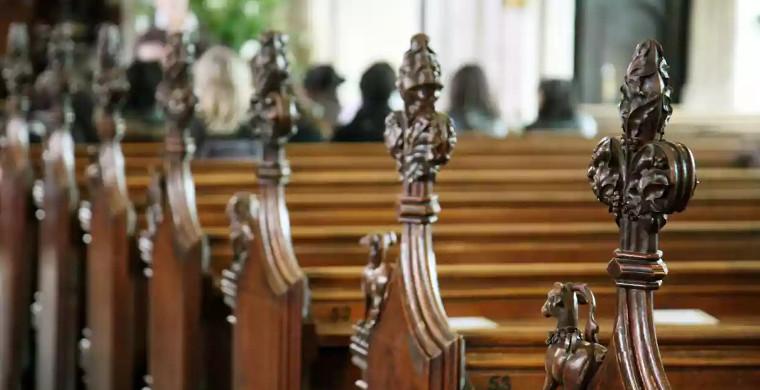Attendance at Church of England's Sunday services falls again
Figures show downward trend continuing, but attendance at Christmas services last year was highest in a decade
Fewer people are turning to the church for key life events such as wedding or funerals. Photograph: Kumar Sriskandan/Alamy
By Harriet Sherwood Religion correspondent
https://www.theguardian.com/w
Nov. 14, 2018
The number of people attending the Church of England's Sunday services fell again last year, to 722,000 -- 18,000 fewer than in 2016 -- continuing a trend seen over recent decades.
However, attendance at Christmas services in 2017 was the highest in a decade, at 2.68 million, suggesting that services are increasingly seen as an element of festivities rather than regular religious worship. The figure was a marginal increase on last year's 2.6 million.
Annual statistics released on Wednesday by the C of E also showed a decline in the number of people turning to the church for key life events. The church conducted 106,000 baptisms and services of thanksgiving for a new child in 2017, compared with 120,000 the year before; 41,000 marriages compared with 45,000 in 2016; and 133,000 funerals compared with 139,000.
The statistics follow a pattern of fewer people identifying with the church, or any organised religion. Figures published by the British Social Attitudes survey in September showed that affiliation with the C of E was at a record low, at 14% -- and down to 2% among young adults. More than half the population said they had no religion.
But the C of E said its "worshipping community" -- people who regularly attend services, not necessarily on Sundays -- rose slightly in 2017 to 1.14 million people, of whom 20% were aged under 18 years old.
In recent years, the C of E has encouraged parishes to organise worship at different times of the day and week to facilitate people whose lives do not fit conventional patterns.
Sarah Mullally, the bishop of London, said: "We live in an age of rapid social change affecting all aspects of life -- right down to people's working patterns and how they spend their weekends. It is really striking to see how churches are responding and evolving in the face of that.
"While there's a downward pattern in Sunday attendance, the fact that worshipping community -- membership -- figures are stable shows that for many people, being part of the church is more than just a matter of what they do on a Sunday morning."
Referring to data showing the C of E had more than doubled its monthly reach on social media -- from 1.2 million in 2017 to 2.44 million this year -- she added: "We are also ... providing a Christian presence to those who might not otherwise walk through the door of a church.
"And millions encounter the church in their daily lives, through its commitment to the most vulnerable from food bank provision to night shelters, lunch clubs and community cafes."
Earlier this month, the C of E said its churches were running or supporting more than 33,000 social action projects across the country.
On Tuesday, the C of E launched a campaign, #FollowTheStar, to encourage people to attend churches over the Christmas period.
"#FollowTheStar is celebrating the fact that at the centre of Christmas is Jesus -- who brings joy, healing hope and love, whatever situation you are in -- and inviting others to share in that love," said Justin Welby, the archbishop of Canterbury, at Lambeth Palace.
END














